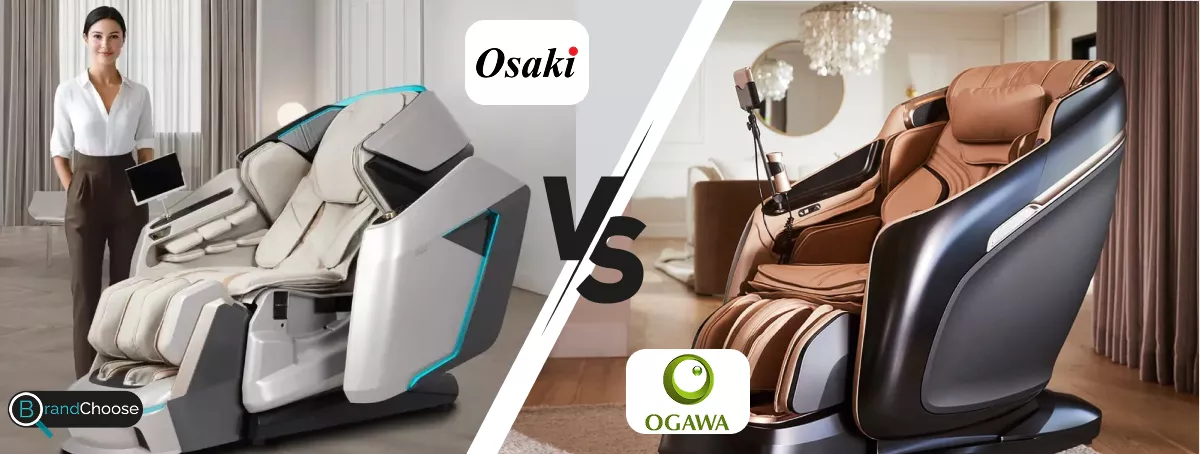
In the premium massage chair world, few match the scale and variety of Osaki, a brand known for flooding the market with high-spec, competitively priced models. Whether it’s their entry-level OS-Champ or the luxurious Maestro LE 2.0, Osaki aims to offer something for every budget and use case. Ogawa, on the other hand, keeps things lean and highly refined. With just a few premium models—namely the Active L Plus and Master Drive AI 2.0—Ogawa leans into a “less but better” approach, prioritizing AI, silent operation, and precise therapeutic performance. While Osaki often appeals to variety-seekers and value hunters, Ogawa targets those who want fewer decisions, more polish, and a wellness-grade experience.
Product Selection
🟦 Osaki: Operates more like a department store than a specialty shop. With over 60 active models, the brand covers everything from 2-D compact chairs like the OS-4000T to flagship 4-D systems with dual heat zones and voice control. There are models tailored for petite users, chairs with space-saving frames, and options loaded with entertainment features. While this breadth gives buyers more choices, it can also be overwhelming. Similar-sounding product names and overlapping features make it tricky for first-time buyers to figure out which chair truly fits their needs.
| Primary Use Case | Osaki | Ogawa | ||
| Entry | OS-Champ | 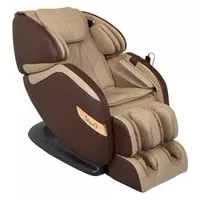 |
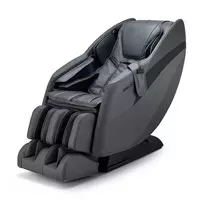 |
Refresh Plus 3D |
| Mid | OS-Pro Admiral II | 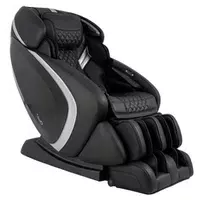 |
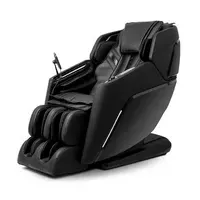 |
Active L Plus |
| Flagship | Maestro LE 2.0 | 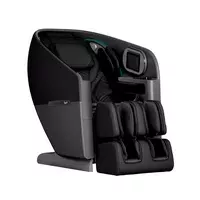 |
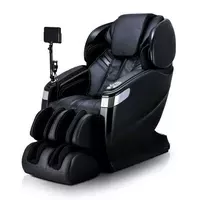 |
Master Drive AI 2.0 |
🟪 Ogawa: In contrast, offers only a handful of massage chairs in the U.S. market, but each is carefully positioned. The Active L Plus is its mid-tier option with premium specs, while the Master Drive AI 2.0 serves as its flagship, featuring the most advanced AI and sensor systems. There’s no entry-level model, no filler chairs, and no confusion: if you want a more affordable Ogawa, you buy the Active L Plus; if you want the best, you get the Master Drive AI. The smaller lineup makes comparison and decision-making easier.
✅ Verdict: Osaki wins in sheer volume and accessibility, with options for nearly every type of buyer. Ogawa takes a simpler, high-end approach that prioritizes clarity and consistency over variety.
Customer Support & Warranty
Support quality becomes crucial the moment something breaks—or fails to arrive as expected. Warranty terms and service speed often make or break the ownership experience.
🟦 Osaki: Offers 1- to 3-year warranties depending on model and retailer, with some flagship models reaching 5 years for structural components. Support is U.S.-based, but user reviews reveal inconsistency—some praise quick part replacement, others cite delays and difficulties with third-party service techs. Purchasing through trusted retailers makes a big difference here.
🟪 Ogawa: (through Cozzia USA) Includes a standard 3-year in-home service warranty with both models, with easy upgrade paths to 5 years. Their smaller service network is more controlled, and BBB reports show few unresolved complaints. Ogawa buyers generally report smoother delivery and setup, especially for white-glove orders.
✅ Verdict: Ogawa takes the lead in support consistency and ownership peace of mind. Osaki’s support quality is tied closely to the seller you choose.
Build Quality & Durability
Build quality is where long-term ownership reveals a chair’s true value. Materials, motor noise, cushion wear, and internal component durability are what separate great chairs from disappointing ones a year later.
🟦 Osaki: Delivers strong build consistency in its mid to upper tiers. The Admiral II and Maestro LE 2.0 feature solid internal frames, smooth-rolling mechanics, and thick padding that resists compression. Finishing materials—especially on the Maestro—feel premium and include refined stitching and soft-touch surfaces. However, some entry-level units, like the OS-Champ, use lighter materials and may develop panel creaks or vibration noise over time. Customer reviews vary by model, with high-end chairs getting more consistent praise for durability.
🟪 Ogawa: Dis more uniform in its premium construction. Both the Active L Plus and Master Drive AI 2.0 use high-density cushions, aircraft-grade frames, and ultra-quiet brushless motors. Users consistently report whisper-quiet operation even after years of daily use. Upholstery is hand-stitched and double-padded, with few signs of wear. The Master Drive also features modular components, allowing easier repair or part replacement if needed—something rarely found in consumer massage chairs.
✅ Verdict: Osaki's quality is model-dependent but solid at the top. Ogawa offers more consistent, quieter, and longer-lasting builds across the board, especially at flagship level.
Massage Variety
The core of any massage chair is its ability to mimic human-like techniques. How many styles does it offer? How customizable are they? Does the chair adapt or just repeat routines?
🟦 Osaki: Covers a broad range. The OS-Champ delivers five basic routines—fine for casual users but lacking in depth. The Admiral II introduces 3D rollers and 15 programs, including targeted sequences like “Neck Relief” and “Office Recovery.” At the top, the Maestro LE 2.0 uses heated 4D rollers—capable of shifting depth and speed dynamically—to simulate human hands more closely. The inclusion of stretch modes, variable-speed kneading, and deep-tissue routines gives the Maestro a clear advantage for users who want intensity options.

🟪 Ogawa: While more selective, focuses on quality and adaptivity. The Active L Plus offers 12 techniques, well-tuned and smooth, without overwhelming choices. The Master Drive AI 2.0 adds real-time adjustments with its AI 4D system, allowing the rollers to react to pressure feedback during use. It’s not about the number of styles—it’s about how intelligently they’re delivered. Each session feels personalized, especially in modes like “Vertebrae Care” or “Circulation.”
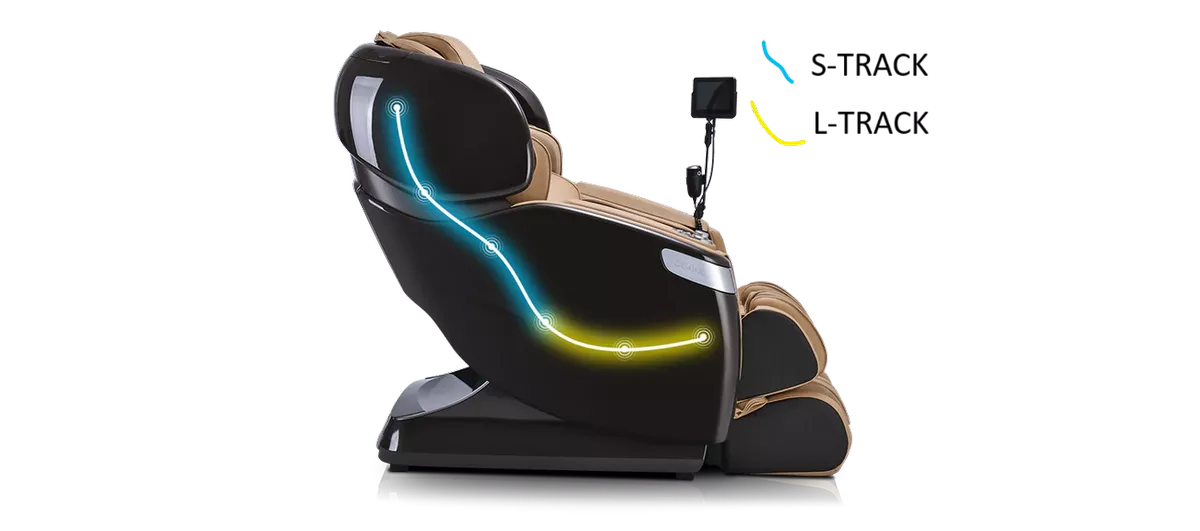
✅ Verdict: Osaki wins for sheer variety and flexibility, especially across budgets. But Ogawa offers superior adaptive precision, ideal for those prioritizing therapeutic consistency.
Programs Variety
Auto programs simplify the user experience. Great chairs not only offer more routines but make them intuitive, goal-oriented, and customizable.
🟦 Osaki: Packs in programs. The OS-Champ has five, while the Admiral II boosts that to 15. The Maestro LE 2.0 includes eight sophisticated routines plus custom memory slots, making it great for homes with multiple users. However, while the variety is excellent, the remotes on mid-tier models can feel cluttered and a bit dated.
🟪 Ogawa: Routines of Ogawa are more focused. The Active L Plus includes 12 clear options like “Lumbar Focus” or “Spinal Alignment.” The Master Drive AI 2.0 enhances this with 28 AI-personalized programs, launched via a clean tablet-style interface. Its Health Scan feature tailors intensity and routine selection to the user’s needs, rather than making them choose from a long list blindly.
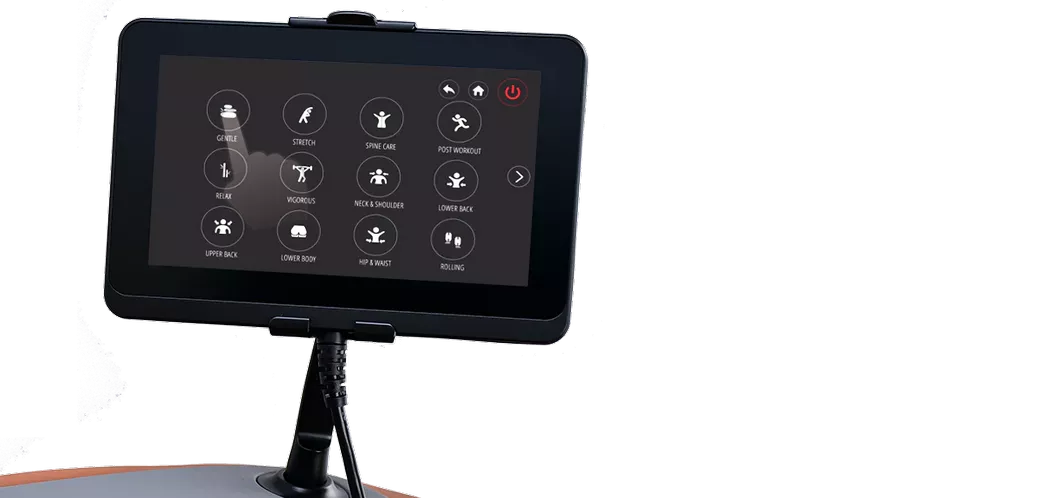
✅ Verdict: Osaki’s program count and personalization options are hard to beat, but Ogawa excels in clarity and automatic adaptation, giving it the edge for users who want a “set it and forget it” approach.
Cost & Affordability
Cost is where these brands diverge sharply.
🟦 Osaki: Covers the market from just over $1,500 all the way to $10,000, depending on model and retailer. Chairs like the OS-Champ often go on sale below $2,000, while the Maestro LE 2.0 regularly drops from $9,000 to around $6,500 during major sales. You’ll frequently find Osaki models in Costco or Sam’s Club with bundled delivery offers and promotions.
🟪 Ogawa: On the other hand, Ogawa is firmly in the premium price bracket. The Active L Plus typically starts above $4,000, and the Master Drive AI 2.0 ranges near $9,000, with limited discounts. Ogawa rarely competes on price but positions itself as a long-term health investment rather than a lifestyle gadget.
✅ Verdict: Osaki is the clear winner for budget flexibility and deal hunters. Ogawa is for buyers who are willing to spend more upfront for lasting quality and precision.
Technology & Wellness Extras
While the massage mechanism is the core, tech features can enhance or clutter the experience. The best extras support wellness without becoming gimmicks.
🟦 Osaki: Brings firepower. The Maestro LE 2.0 features voice activation, heated back rollers, ambient LED lighting, Bluetooth audio, and space-saving wall clearance. Lower-tier models include features like USB charging and preset memory. However, integration varies: in some models, the voice commands are basic and the LED lighting more decorative than useful.
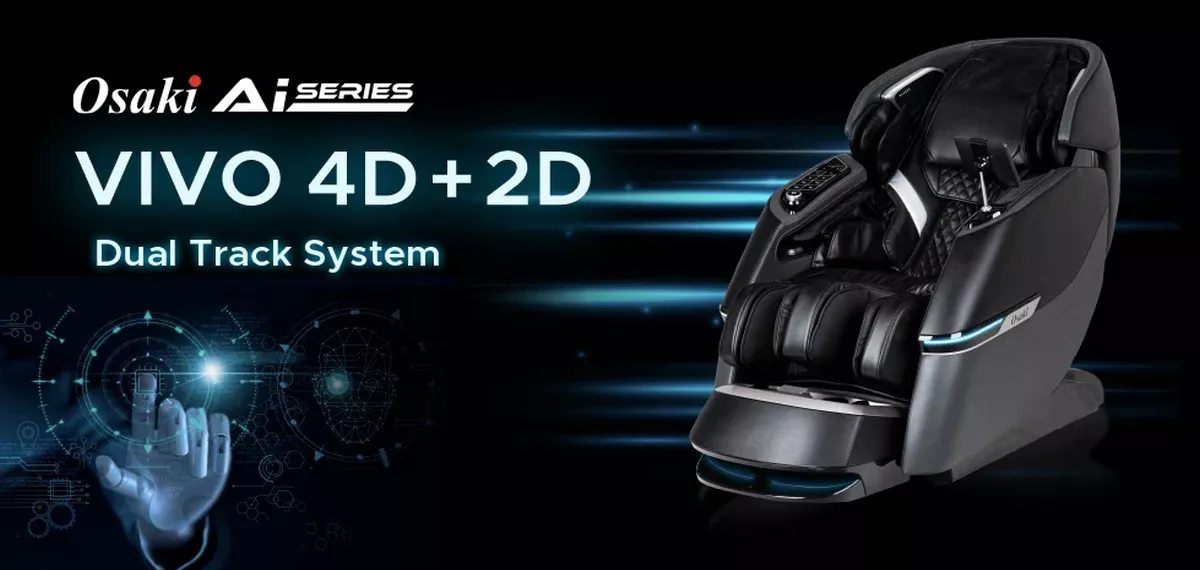
🟪 Ogawa: Tech of Ogawa is more cohesive. The Master Drive AI 2.0 is driven by AI sensors that adjust intensity mid-session based on real-time body feedback. The tablet interface is clean and intuitive, offering adjustments on the fly. While it doesn’t have flashy lights or voice assistants, the Health Scan, smart recline memory, and calf heating all feel thoughtfully integrated. You get fewer features, but each has real functional value.
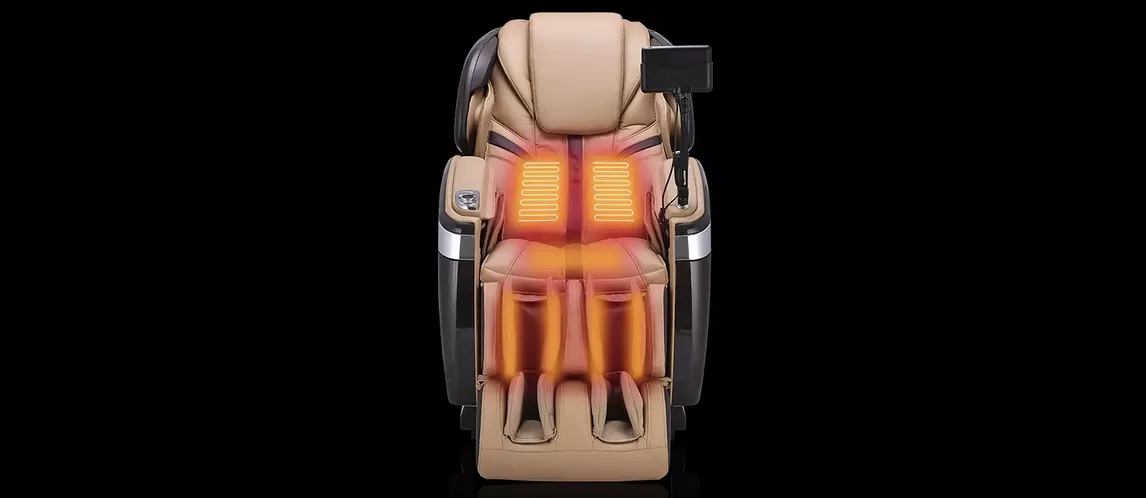
✅ Verdict: Osaki provides more features, especially for the price, but Ogawa focuses on refined, meaningful tech that enhances therapeutic outcomes rather than distracting from them.
Body Coverage & Adjustability
Good massage coverage means not only hitting the right muscles, but adjusting to your body shape, height, and changing posture during use.
🟦 Osaki: Offers impressive range. The Maestro LE 2.0 features a 53" SL-track for full back-to-glute coverage. Its foot and calf units include rollers, and the airbags target every zone—shoulders, arms, hips, calves, and feet—with decent adjustability. Auto body-scan ensures the roller height matches your frame, although in lower-tier models, short users might need manual tweaks.
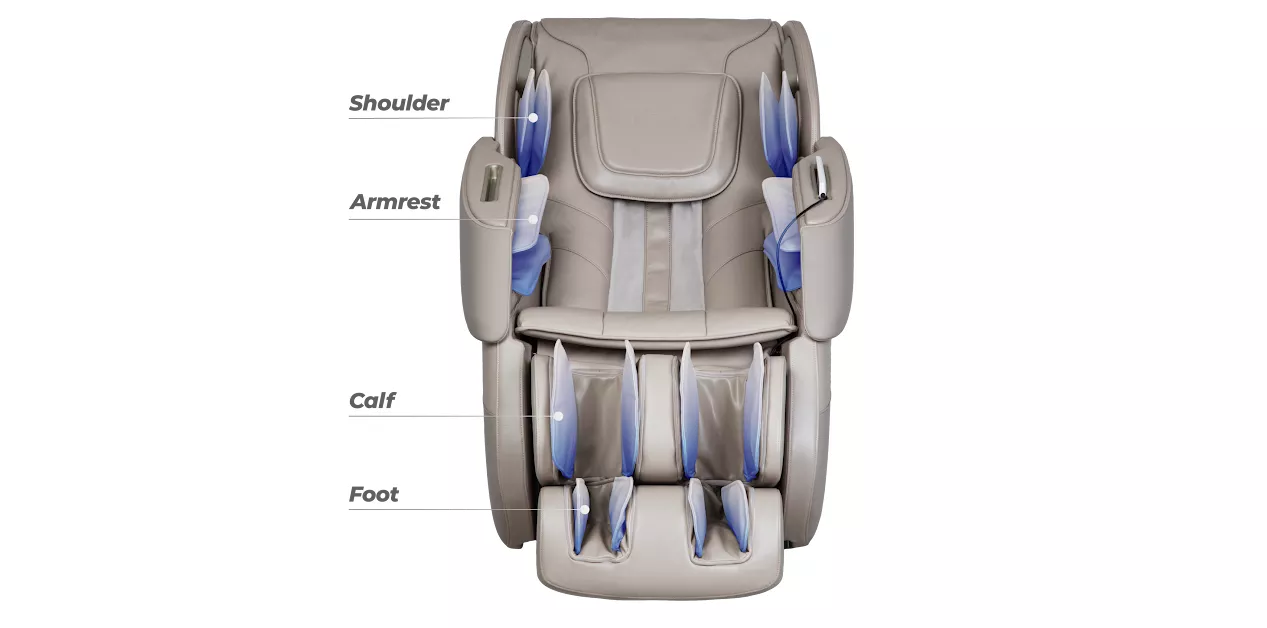
🟪 Ogawa: Master Drive AI 2.0 offers a comparable 54" SL-track, but its standout feature is real-time AI mapping, which micro-adjusts roller paths mid-session. The airbags are fewer in number but smarter in timing. Wave-style inflation in the calf and arm zones makes it feel more coordinated, less mechanical. The extension mechanism for legs is smooth and intuitive, great for multi-user households.
✅ Verdict: Osaki delivers stronger overall coverage and higher adjustability range, but Ogawa’s smart auto-tuning ensures more accurate, consistent performance over time.
Comfort & Ergonomics
If a chair isn’t comfortable, it doesn’t matter how good the massage is. Supportive cushions, proper posture, and ease of entry all contribute to whether you'll want to use the chair every day.
🟦 Osaki: Approach of Osaki is lounge-first. Models like the Admiral II and Maestro LE 2.0 feature soft padding, spacious seat pans, and multiple Zero Gravity levels to ease spinal pressure. The shoulder and calf areas feel spacious even for larger frames. However, in budget models like the OS-Champ, shorter tracks and firmer cushions can limit comfort for taller users.
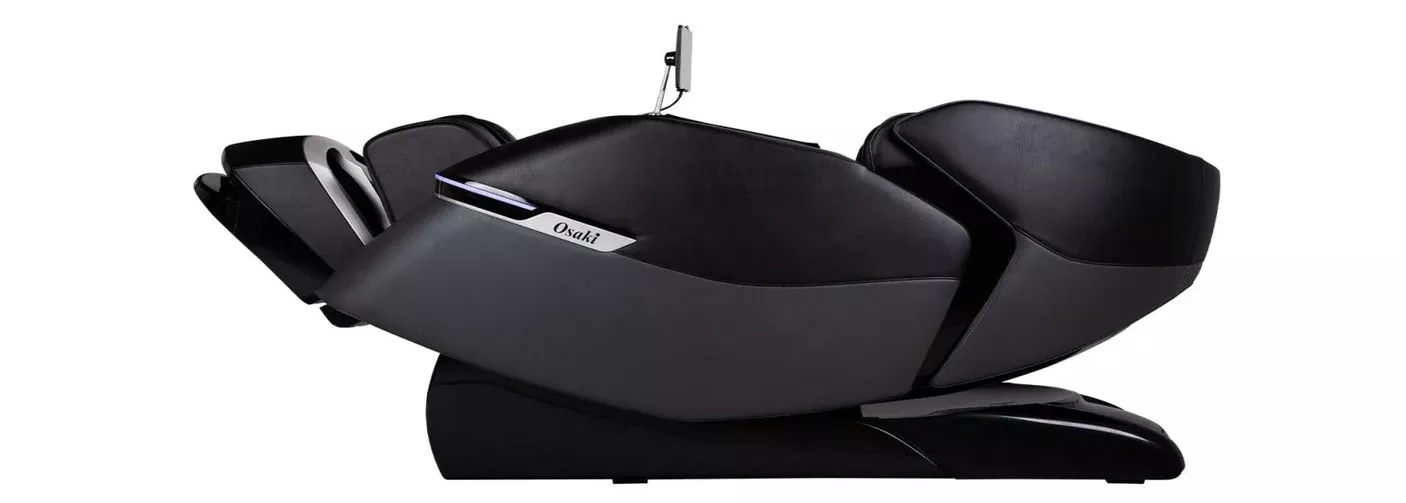
🟪 Ogawa: leans clinical. Its firmer foam and upright ergonomic design in the Active L Plus promote healthy spinal alignment. The Master Drive AI 2.0 adds side-opening armrests, making it easier to get in and out—especially useful for seniors. Recline angles are carefully tuned to support long therapy sessions without creating strain on the hips or neck.
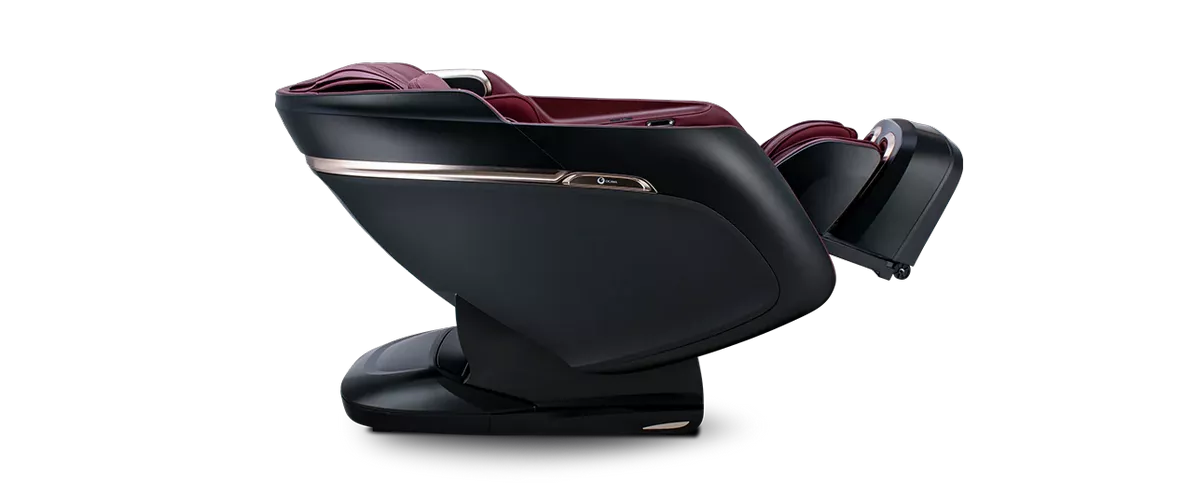
✅ Verdict: Osaki wins for immediate comfort and relaxed lounging, while Ogawa is better for long-term postural support and quieter sessions.
Quick Buyer Match Guide
🟦🟦 Choose Osaki if you
• Want a wide range of prices and models to match your exact needs.
• Prefer lots of features like voice control, LED lights, and entertainment add-ons.
• Are buying for a household with varied needs and body sizes.
• Plan to shop seasonal sales or warehouse promotions.
🟪🟪 Choose Ogawa if you
• Value quiet operation, adaptive intelligence, and long-term reliability.
• Want fewer decisions and a focused, refined experience.
• Are shopping for clinical-grade performance and superior ergonomics.
• Don’t mind spending more for something that feels hand-built and thoughtfully engineered.
Conclusion
Osaki and Ogawa represent two high-performing but radically different visions of what a massage chair should be. Osaki offers unmatched variety and feature-per-dollar value, making it an excellent choice for families, bargain hunters, or users who love tech-heavy, customizable experiences. Ogawa, meanwhile, delivers focused, medical-grade engineering with less flash and more refinement—perfect for buyers who want fewer choices but better execution.
If your goal is to explore, customize, and maximize value, Osaki has your path. If you prefer clarity, consistency, and a deep therapeutic return on your investment, Ogawa stands tall. Both deliver. The better choice? Depends entirely on the user you are—and the experience you seek.



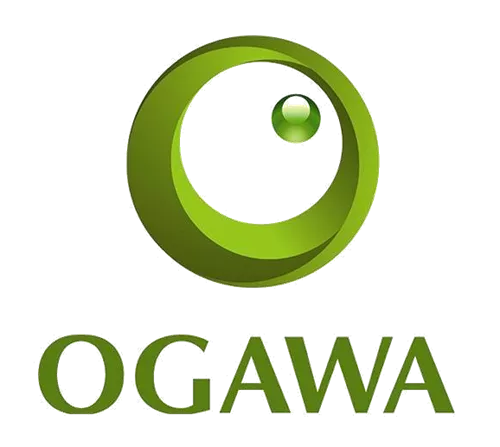



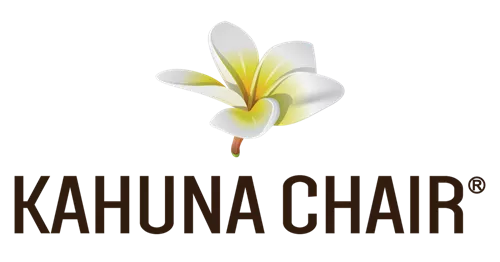


.png)